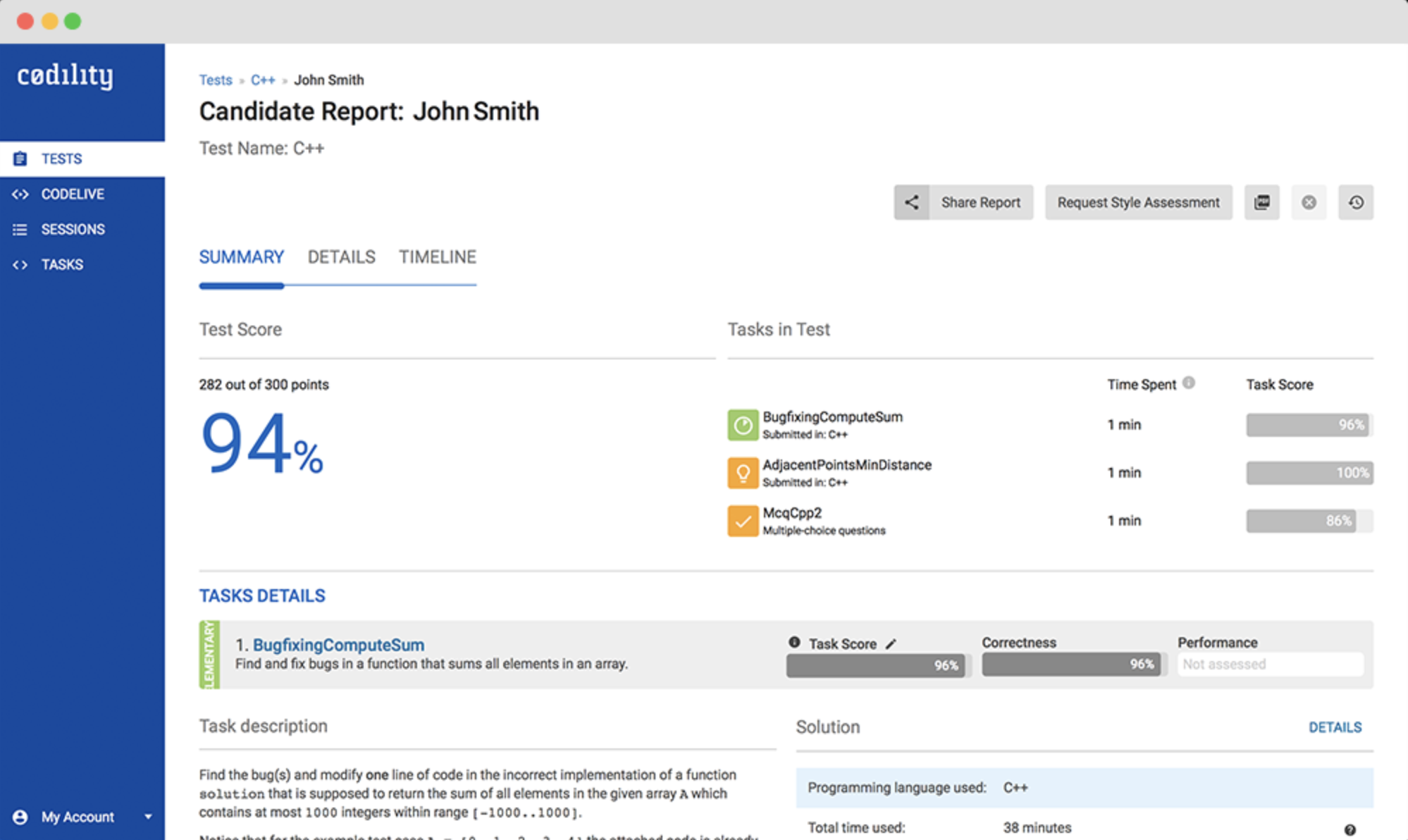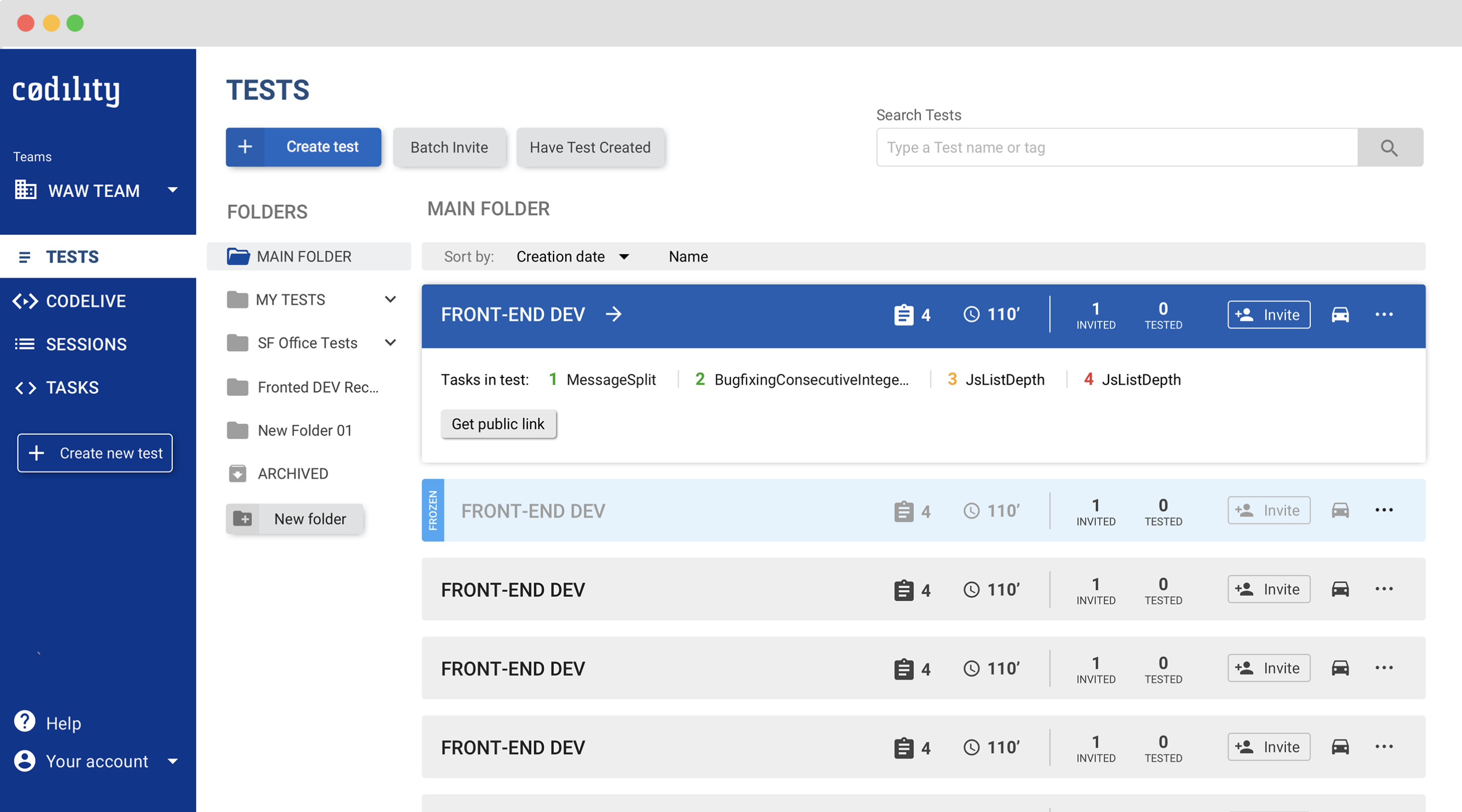Codility, a platform that helps tech recruiters and hiring managers asses candidates through online coding tests, today announced that it has raised a $22 million Series A round led by Oxx and Kennet Partners.
This marks the first time Codility has raised any funding, after ten years as a bootstrapped company. Clearly, though, despite having achieved double-digit annual recurring revenue in those ten years, the team nowbelieves that it has an opportunity to grow its market share in what is becoming a more competitive market for tech hiring platforms — and to do so, it needs outside funding.
So far, the company has brought on an impressive list of customers, including Microsoft, Tesla, Slack, Okta, Rakuten, American Express, and UnitedHealth Group. In total, the company says it had 1,500 customers in 2019 and helped them evaluate over 450,000 candidates, a number the company says has grown over 50 percent year-over-year.

What sets Codility apart from similar platforms is that it aims to provide coding tests that are closer to what engineers typically face in their day-to-day jobs instead of highly abstract whiteboarding sessions that evaluate their theory of algorithms knowledge.
“The biggest bottleneck to achieving this lies in sourcing, screening, and interviewing,” said Codility CEO Natalia Panowicz. “This is where Codility comes in. We allow businesses to deliver great experiences to candidates and deep insights to the hiring team — improving decision-making and ultimately increasing their overall engineering capacity.”
The company says its system allows it to provide recruiters with a “360-degree evaluation of technical ability” that helps managers ensure that a candidate is a good fit for a given position. Ideally, this also reduces the effect of unconscious bias in the recruiting and placement process.
As part of its platform, Codility offers its technical skills and evaluation services for recruiters, including a shared editor for live technical interviews. In addition, the company also helps companies run their own coding competitions, which they can then use to identify potential candidates, including those who aren’t actively looking for a new job.
“Codility is a great solution for hiring teams based on the needs of quality high-volume hiring; such as consistency, standardization, and scalability,” said Vicky Xiong, Senior Director of Engineering at Okta. “Codility also enables Okta to create a great candidate experience, which is core to our values as a company.”
from TechCrunch https://ift.tt/37GTGVF
via IFTTT

Comments
Post a Comment